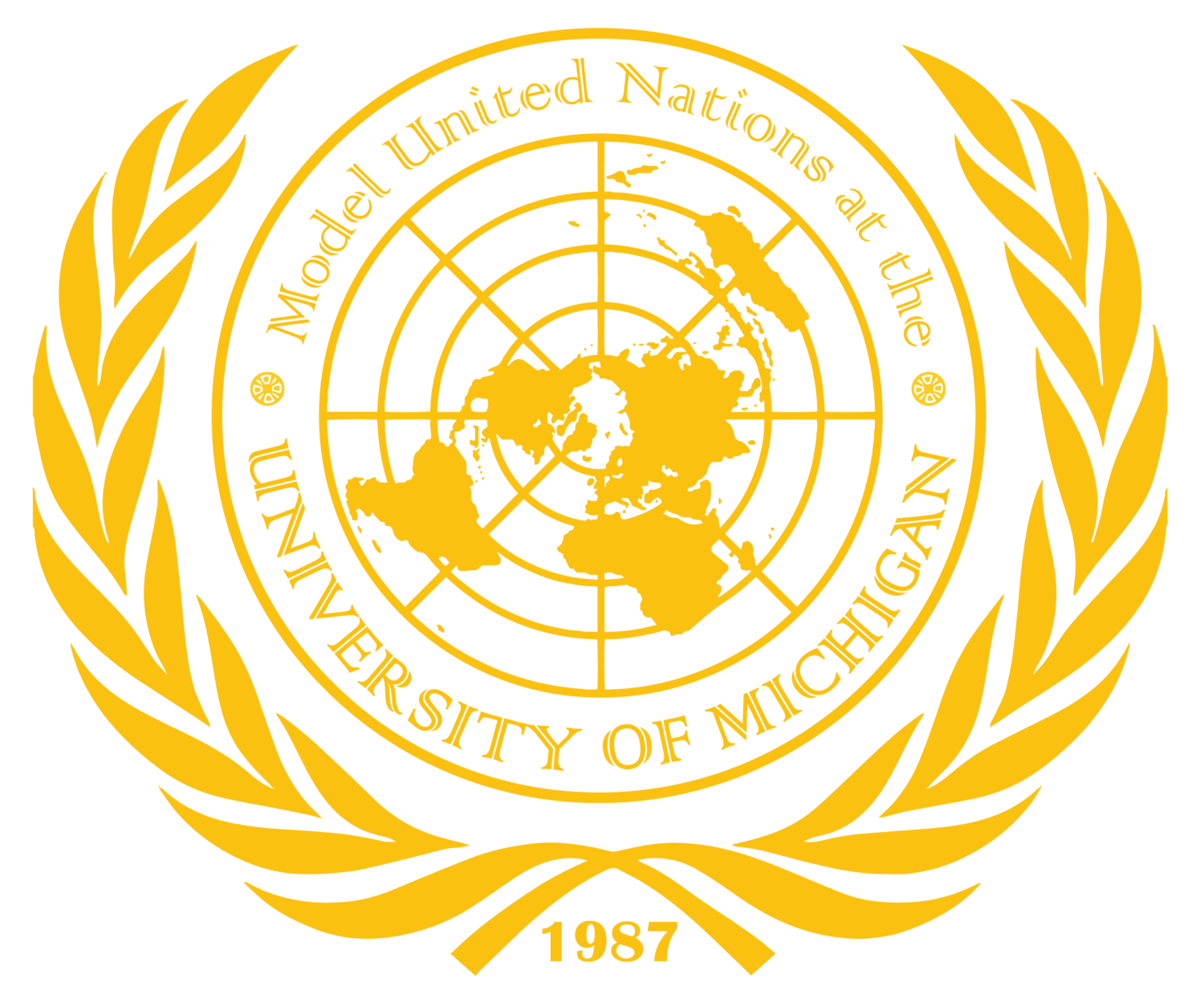By: Piper Davenport
Chaired by Professor Charlotte Cavaille, the Assistant Professor of Public Policy at the Ford School of Public Policy, the conference's presentation offered both MUNUM staffers and participants an opportunity to broaden their horizons on modern political scapes as they relate to the Covid-19 pandemic. With a special focus on the United States, China, and France, the specializations of the three professors, they contrasted the ways the pandemic has been handled, and how concepts of trust have innately impacted the efficacy of policy throughout the world.
Presenters
Professor Joshua Cole - UM history professor specializing in the topic of Colonial Violence especially as it relates to France, Germany, and Algeria
Professor Mary Gallagher - UM political science professor with a focus area in Chinese politics, law, and human rights
Professor Dan Slater - UM political science professor specializing in the current and historical nature of maintained dictatorships and new democracies, with an expertise on Southeast Asia
Facts and Features relating Covid to your area of expertise.
Beginning the discussion Professor Cole spoke first examining the US and France specifically highlighting the similar origins of their current governments out of revolution. Within this comparison he also noted that issues of race and national belonging had reached crisis levels before the pandemic which they served to exacerbate them. He explained that as the international health crisis progressed “political entrepreneurs” sought to take advantage of their divisions and that it is “hard to address the covid crisis when many people do not feel like they are part of a recognised collective,”.
Professor Gallagher followed up through further comparison of governments and their success in slowing the progression of Covid-19. She noted the ability of China to effectively eradicated it with brutal efficiency because of their authoritarian control. However she countered the message the Chinese government has often projected that authoritarianism is the only effective solution by bringing up Taiwan, who, as a nation is culturally very similar, but maintains a democracy was also very successful. The conclusion that she came to was that, what makes a country successful in the face of crisis is a sense of social cooperation, or in China’s case compliancy, which the US simply lacks.
Serving as a summary of sorts of this topic, Professor Slater explained that Covid has not directly triggered a “political backsliding”, though it has been used by certain people as justification for the repression of some rights. Most significantly he noted the silencing of critical press. While the actions of these individuals are as accurate as they are regrettable Slater also emphasized that the government “Doesn’t just repress, it also regulates and redistributes,”.
How has your work with the rest of the world helped you understand what we are experiencing in the United States?
This topic maintained a focus on polarization to which Professor Cole explained that, “[what is] interesting about moments of polarization is that they are a departure from the system of broad coalitions; the people who remain in the polarized parties are the extreme perspective on policy,”. As it relates to the question the presenters expressed that it is absolutely imperative to draw connections between history and modern politics as well as across national borders. Professor Cole emphasized this sentiment by briefly explaining the situation in France with the Yellow Vest movement. He explained that social movements in any nation can rarely ever be reduced to one factor, but rather are usually based on years of growing dissent from different perspectives.
What are the social determinants of trust and how do you accumulate more of it?
Professor Caville introduced this topic and categorized trust as “the dark matter of politics” because it is at once fickle and the cornerstone of every social contract. Professor Slater discusses the idea of trust as it relates to intergenerational politics. He explained that younger people are more open towards multiculturalism, perhaps due to their extreme exposure through the media, while older people have a higher tendency towards tribalism. This mentality of “othering” can be felt within all issues from race to the political polarization of the United States. Contextualizing the polarization of US politics Professor Gallagher noted the bipartisan support of globalization in the 1980s, under President Reagan, and the shock that followed from the effects.
On a different note, Gallagher also explained the hierarchical trust dynamic in China in which the citizenry view the central government as benevolent and the local government as corrupt and inefficient. It is interesting to understand this in comparison to the US where the majority of people, on both ends of the political spectrum, believe the direct opposite. Professor Cole then cited the weakened state, and eventual collapse, of the Soviet Union after Chernobyl, and noted how interesting it is that the Chinese government has been able to maintain control in the face of international crisis while usually authoritarian regimes suffer.
What would you suggest to young people?
To conclude the presentation the professors offered words of advice to the young people that were able to join. Slater simply stated that it is often those that are older that are learning from the young, but that they must always fight to avoid hatred and progress the understandings of other peoples. Professors Cole and Gallagher used their last minutes to emphasize the necessity of comprehensive research and consuming media at sustainable rates. To conclude the discussion Gallagher reminded the participants once more that “you can always find something on the internet that confirms your bias, the struggle is to not do it,”.
